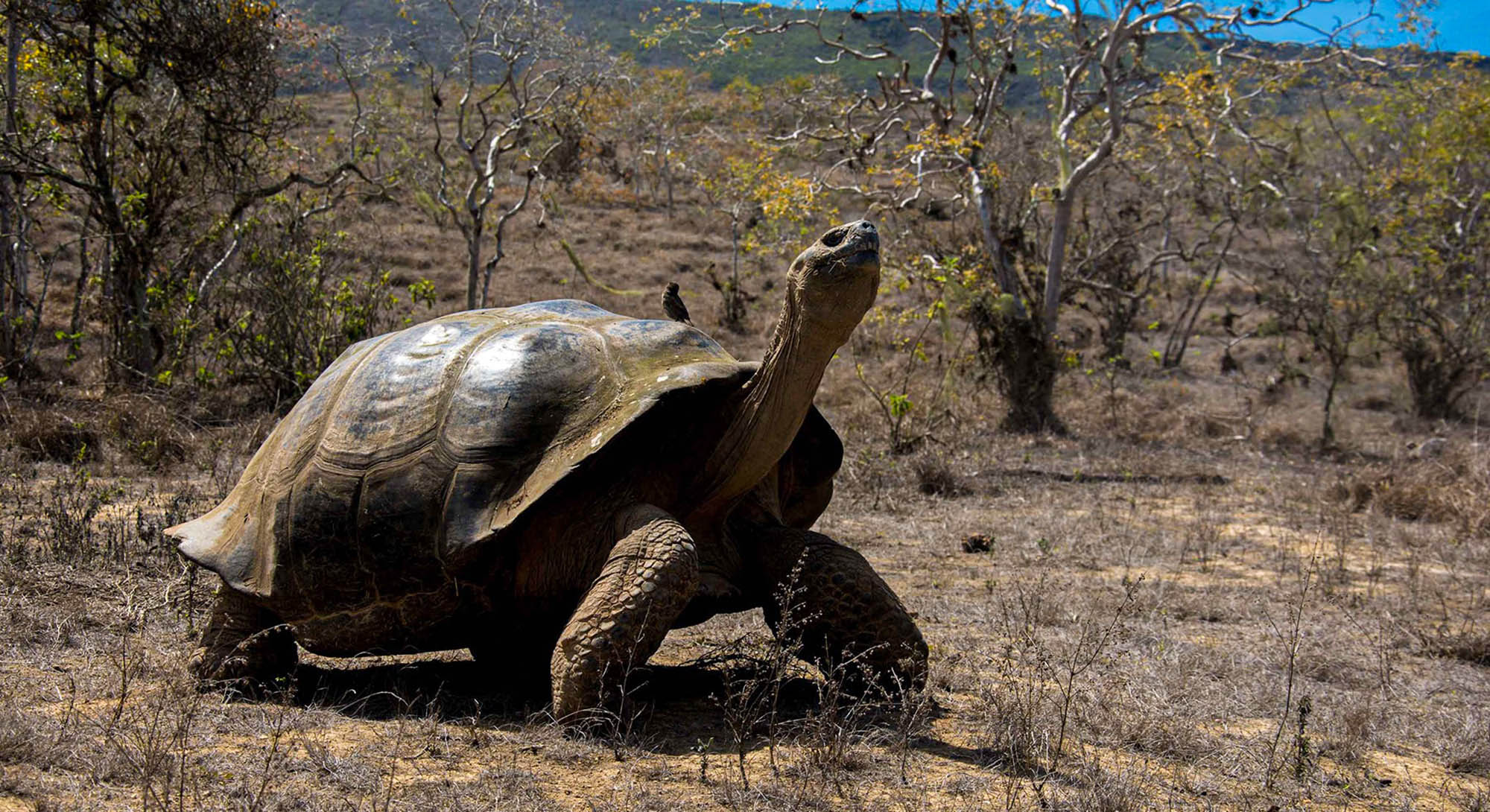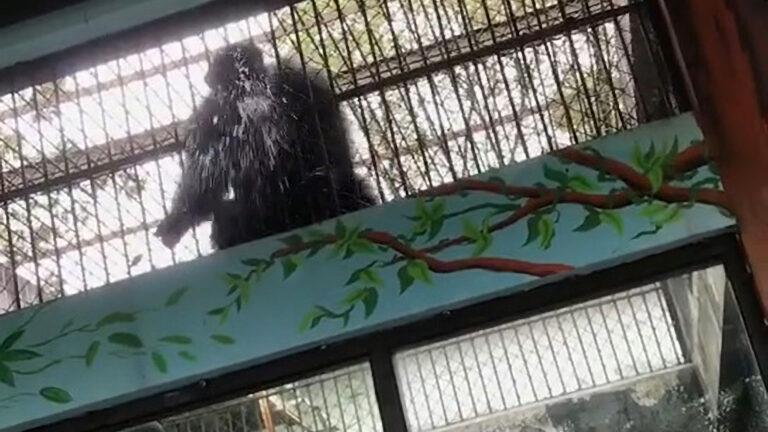Four new viruses have been discovered in giant tortoises is in the Galapagos Islands after 454 of the animals underwent COVID-style testing.
The research showed that the infected animals live on islands where there is human activity, while tortoises on islands with no human activity did not test positive for the four viruses.
The animals were tested using a process that is similar to that used to detect COVID-19 in human beings, according to the Charles Darwin Foundation (CDF), which released a statement obtained by Newsflash about the discoveries.
The CDF said that the research determined that several different species of giant tortoise living on different islands in the Galapagos were found to be carrying herpesviruses and adenoviruses, two viruses well-known for causing disease in turtles and tortoises around the world.
The CDF said that the results were “verified in a process that is similar to the COVID test we humans have become increasingly familiar with, but for tortoises, we collect a swab sample from the eyes, mouth, and the cloaca for PCR (molecular) analyses.”
The experts also said that they had assessed “up to four infectious disease-causing agents that threaten turtles and tortoises around the world (herpesvirus, adenovirus, mycoplasma, and ranavirus); two of these (adenovirus and herpesvirus) were deemed positive in Galapagos tortoises.”
The discovery of the four viruses is the result of a study carried out by an international team of scientists from the CDF in the Galapagos Islands in Ecuador, who worked with other experts at the Saint Louis Zoo Institute for Conservation Medicine (ICM) in Missouri, in the USA.
There were also experts involved in the project from the Research Centre for Animal Health (CISA) in Madrid, the capital of Spain, and from the Complutense University, also in Madrid, as well as the European University of Madrid, together with technicians from the Galapagos National Park Directorate (GNPD).
Ainoa Nieto Claudin, the study’s lead author, said: “Infectious diseases have been reported as causes of mortality in turtles and tortoises globally, but previous to our study there was no information about the infectious diseases that may affect giant tortoises in Galapagos.”
The CDF said that it did not detect the viruses in all the tortoises that it tested, adding that on Espanola Island, “that is not inhabited by humans, no viruses were detected, whereas in Santa Cruz both adenovirus and herpesvirus were detected in the species more closely related to human activities.”
Nieto Claudin added: “Giant tortoises act as sentinels of ecosystem health and the discovery of four viruses highlights the need for in-depth studies of infectious agents in the Galapagos wildlife.”
The CDF said that another research study conducted by the same group of scientists had described how human activity in the Galapagos Islands was “driving the transmission of antibiotic resistance in giant tortoises”.
For Dr Sharon Deem, the Director of the ICM and the lead author of the paper, this is indicative of the importance of conducting health assessments of endemic wildlife species so as to detect novel and emerging diseases “that may threaten animal and human health alike”.
The expert said that the discovery of the four viruses was not necessarily a negative thing, adding that it was possible that these viruses have been evolving in the tortoises “for hundreds of years”.
Dr Deem added: “Endemic pathogens that have evolved with a particular species do not usually cause harm or diseases to those species unless the virus jumps to another species, or if the animal harboring the virus suffers from other stressors that may compromise their immune system.”
Future studies, according to the CDF, will be geared, among other things, towards assessing whether or not these viruses play a role in the survival and fitness abilities of the tortoises.
The study was published in the academic journal Transboundary and Emerging Diseases.
To find out more about the author, editor or agency that supplied this story – please click below.
Story By: Joseph Golder, Sub-Editor: William McGee, Agency: Newsflash
The Ananova page is created by and dedicated to professional, independent freelance journalists. It is a place for us to showcase our work. When our news is sold to our media partners, we will include the link here.




